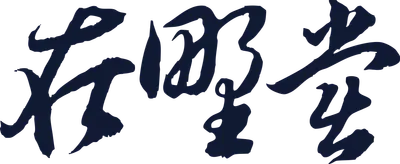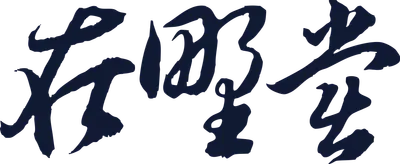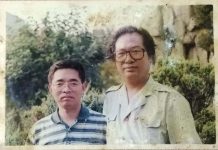提供者:袁崛 责任编辑:鲁慧文

中国民主党组党初期,全国各地来杭州取经的朋友,回去建立各地的筹委会
一九九八年六月二十五日,在美国总统克林顿抵达中国大陆访问之前仅数小时,王有才和王东海、林辉三人向浙江省民政局提出书面申请,要求成立中国民主党浙江筹备委员会。这是中共建政五十年以来,政治异议人士首次公开申请成立反对党,这是中国民主运动史上的重大事件。
王有才等人委托中国人权民运信息中心发出筹组“中国民主党”的宣言及该党的党章,于六月二十五日下午前去浙江省民政厅递交文件申请为该党注册,这是中共建国近五十年来首次有异议人士以公开的姿态宣布筹组反对党,在中国民主运动史上有划时代的意义。这个由著名学生领袖王有才及异议人士王东海、林辉组成的“中国民主党”浙江筹备委员会,发出了“公开宣言”及党章(草案)。他们表示,一切政治权力只能来自公众,服务于公众,故政府只能根据公众的意志而产生,政府应建立于直接的民主选举之上。中国民主党的宗旨是:实现直接民主选举,建立宪政民主政体,建立政治分权机制,铲除政治独裁及政治腐败的土壤。该党也号召各地民运人士加入该党,争取早日召开全国代表大会。 王有才为八九年被通缉二十一名学生领袖之一,后判刑四年,九一年底获释,现居住杭州。王东海八九年为商场经理,“六四”后入狱三年。 林辉刚由宁波大学毕业,现为浙江作家协会成员。
海外民运人士王炳章、王希哲获悉浙江组党的消息后,立即予以密切关注,在与浙江朋友联系磋商的同时,安排各省积极响应。7月初,在得到浙江朋友的委托后成立“中国民主党海外后援会”,王希哲任第一任主席。
中国民主党创始人之一朱虞夫因向市民散发大量传单,宣传「中国民主党」宣言,三十日上午十点被公安从街上强行带走。朱虞夫为七九年民主墙时期杭州民刊「钱江潮」编辑,八九年民运时,被中共公安拘押两个月。
History of the China Democracy Party (Part I)
Submitted by: Yuan Jue | Chief Editor: Lu Huiwen Translator: Lu Huiwen

In the early days of the China Democracy Party’s founding, friends from all over the country came to Hangzhou to learn from the experience, and upon returning, they established preparatory committees in their respective regions.
On June 25, 1998, just hours before U.S. President Bill Clinton arrived in mainland China for a state visit, Wang Youcai, Wang Donghai, and Lin Hui submitted a written application to the Zhejiang Provincial Civil Affairs Bureau, requesting official registration of the Zhejiang Preparatory Committee of the China Democracy Party (CDP).
This marked the first time in 50 years of CCP rule that political dissidents had openly applied to form an opposition party—an unprecedented and monumental event in the history of China’s pro-democracy movement.
Wang Youcai and his colleagues entrusted the Information Center for Human Rights and Democracy (based in Hong Kong) to release a founding declaration and the party’s draft constitution. That same afternoon, they personally submitted the registration documents to the Zhejiang Provincial Civil Affairs Department. This act—openly declaring the formation of an opposition party within China—was a landmark moment in Chinese political history.
The Zhejiang Preparatory Committee of the China Democracy Party, founded by well-known student leader Wang Youcai and dissidents Wang Donghai and Lin Hui, issued a “Public Declaration” and a draft party constitution. They asserted that all political power must originate from and serve the people, and that governments should be formed based on the public will and through direct democratic elections.
The China Democracy Party’s stated mission is to:
• Achieve direct democratic elections
• Establish a constitutional democratic political system
• Create a mechanism of separation of powers
• Eradicate the roots of dictatorship and political corruption
The CDP also called on pro-democracy activists across China to join the party and work toward convening a National Congress as soon as possible.
Wang Youcai, one of the 21 student leaders most wanted after the 1989 Tiananmen Square protests, was later sentenced to four years in prison and released at the end of 1991. He currently resides in Hangzhou.
Wang Donghai, a department store manager during the 1989 movement, was imprisoned for three years after June Fourth.
Lin Hui had just graduated from Ningbo University and was a member of the Zhejiang Writers Association.
Upon learning of the formation of the CDP in Zhejiang, overseas pro-democracy activists Wang Bingzhang and Wang Xizhe immediately took interest. While coordinating with contacts in Zhejiang, they organized support efforts in other provinces. In early July, upon receiving authorization from their Zhejiang colleagues, they founded the China Democracy Party Overseas Support Association, with Wang Xizhe serving as its first president.
One of the CDP’s co-founders, Zhu Yufu, was forcibly taken from the street by public security officers at 10:00 a.m. on the 30th for distributing large numbers of leaflets promoting the CDP Declaration. Zhu Yufu was formerly the editor of Qianjiang Tide, a pro-democracy magazine from the 1979 “Democracy Wall” era in Hangzhou, and had also been detained for two months during the 1989 movement.



